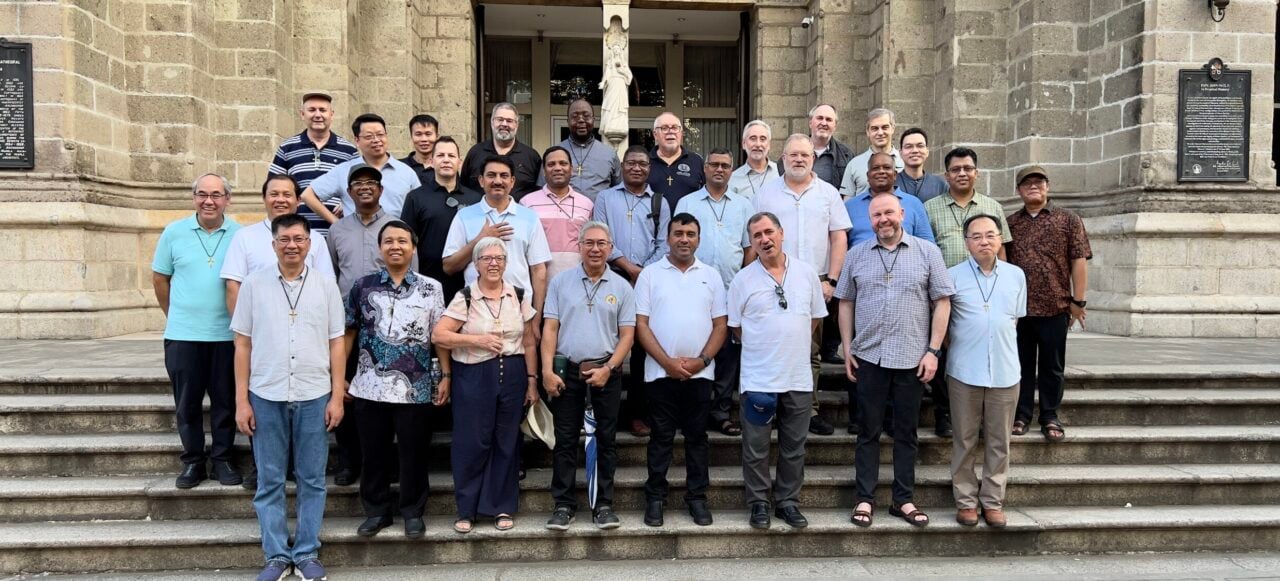Fostering Intercultural Communities: A Hope for Oblate Identity
The Christian mission involves an encounter with multiple cultural realities. First, a missionary comes with his/her own cultural background; secondly, he/she has to learn to live with other missionaries coming from different cultural regions from the time of his/her formation; thirdly, the missionary also encounters the culture of the people with whom he/she works; fourthly, the missionary is engaged with the Gospel values and vision of life which enable him/her to transform cultures and to bring fullness of life, thus fulfilling the dream of Jesus: ‘I have come so that they may have life, life in its fullness.’ (Jn 10:10)
All these cultural encounters in missionary work require a deep understanding of what ‘culture’ is and how it interfaces with the various processes involved in Christian mission. Hence, cultural competence is vital in missionary formation and for intercultural living in mission.
What Intercultural Living Demands
Missionaries react to cultural differences in two ways: they either ‘adjust to the local culture’ or suffer from ‘culture shock’. Missionaries cannot be satisfied with being merely ‘good friends.’ Their vocation requires them to be ‘all things to all people’ (1 Cor 9: 22) and to ‘empty themselves’ (Phil 2:6-7) of the ways natural to them and thus become one with their adopted people. ‘Not our dear friend,’ but ‘one of us’ is what the local people should expect of their missionary.
Two Key Elements of Missionary Identity
- Empathy:
Empathy means to feel with the people or to understand them just as they are. It also means that the missionary fully understands the reasons behind their way of life. Their beliefs and practices have been accepted and held for so long because experience has proved to them that they are the best ways to cope with their physical and social environment. Therefore, missionaries view with true empathy the local ways, not through the coloured glasses of their own cultural background but by embracing the full local context. This does not mean that they should approve scientifically unsound practices. But they will gain a lot by understanding why people behave in particular ways. Empathy leads to tolerance and dialogue. This way will enable the missionary to grasp fully the world-views of the new culture after a long period of slow learning. - Adaptation:
Adaptation implies both internal approval and external usage of local ways and values by the missionary in a foreign culture. This must be done within the limits of sound reason, prudence, faith and scientific knowledge. Actual adaptation is not blind but selective. There are definite limits beyond which a missionary may not go and regarding which he/she may not compromise.
Gospel–Culture Encounter
When missionaries go to other cultures, they take the Gospel message to the people of those cultures to bring fullness of life among them. Hence, all missionary work necessarily involves a gospel–culture encounter. Here, the missionaries must be open to celebrate the truth, goodness and holiness inherent in every culture. These are the life-giving elements in cultures. It is the missionary mandate to transform cultures by identifying the life-negating elements in them. Hence, the gospel–culture encounter is both a celebration as well as a transformation. The missionary formation must be rooted in this gospel–culture encounter by an adequate training in the knowledge of the Gospel as well as of the cultures.
The Church Takes Root in Culture
Cultural diversity is a reality of life. The only way the Church can be implanted in different societies is in and through cultures. This implies that we the Oblate missionaries must understand the working of culture in our own lives and in that of others.
By Eugene Benedict, OMI
Published on the OMI World website


